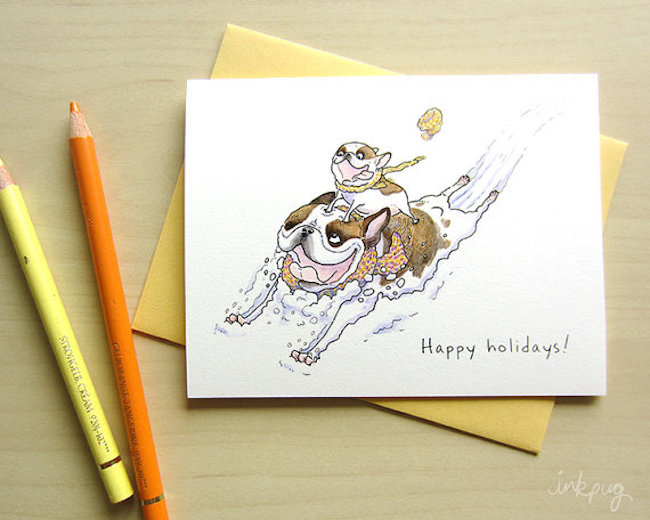Being a pawrent can be even more difficult than being a parent to little hoomans sometimes. This is never more apparent than when you have a sick pup on your hands. Unlike kids, dogs cannot tell us when they are hurting, and the speed with which we notice a problem can make all the difference.
Luckily, there are several signals of illness that can help you recognize when there is a serious problem. The key is knowing what to look for and contacting your vet STAT when you see them.
1. Unexplained Weight Loss
A sudden drop in your pup’s weight without a change in diet or lifestyle is a big cause for concern. Unexplained weight loss could point to metabolic disorders, cancer, heart disease, or neuromuscular illness. Take note if your pup also has a loss of appetite.
2. Fever
Keeping in mind that a dog’s average temperature runs between 100 to 102.5 degrees, a persistent or prolonged fever in your dog could also be a sign of illness or problem. Similar to humans, a spiking temperature is usually a sign of the body fighting off an infection.
3. Poop Problems
If you see any blood in your pup’s stool, it may indicate something as unpleasant as an ulcer or parasite. But definitely see your vet if your pup makes unusually dark, tarry poops. Diarrhea also indicates potential illness, and can even be caused by dehydration. But poop problems are a two way streak. Prolonged constipation may indicate impaction or a foreign body.
4. A Cough That Just Won’t Stop
A persistent cough is not normal for dogs. Since pups can’t get asthma, it could be a sign of bronchitis or a heart problem, among other illnesses.
5. Extreme Fatigue Or Fainting
Fainting is unusual for a pup and should not be taken lightly. Likewise, chronic fatigue could be a bad sign. It’s vital that you contact a vet at the sight of either of these symptoms because they could be symptomatic of cancer, kidney disease, or pancreatitis.
6. Distended Abdomen
Abnormal swelling, especially in the belly, should always be taken seriously. This could be internal bleeding or a hormonal disease. A distended belly can also make it hard for a dog to breath, adding more stress on top of the original illness.
7. Pee Time Troubles
There are many reasons why pups have problems urinating. This could mean a blockage, bladder stone, or some other type of infection. Keep in mind, if you notice blood in the urine, then it’s time to visit the vet right away.
8. Difficulty Breathing
If your dog has trouble breathing, call the vet immediately. Troubled breathing prevents oxygen from getting to the brain, which affects major organs and could cause heart failure. The cause may be an obstructed air passage or worse.
9. Red Eyes
All dogs get dry or red eyes from time to time. But if your pup’s eyes stay red persistently, this could be an infection, an eye socket disorder, or a sign of glaucoma.
10. Restlessness
Restlessness is how your dog tells you something is wrong with her. Symptoms of restlessness include whimpering, whining, pacing, looking scared, or shaking. This is your pup’s way of saying: “Hey, I’m not feeling great and I’m upset.”
11. Vomiting
As dog owners, we all have our fair share of pup puke stories. They’re almost a rite of passage. Occasional vomiting is normal. When vomiting occurs more than three times a day, that is a major concern. Vomiting can be a symptom of other illnesses such as kidney disease and hormonal imbalance.

















